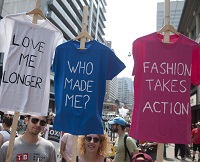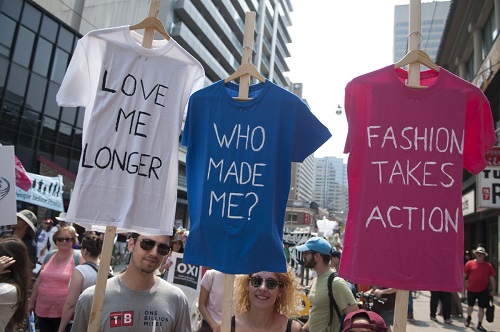 Experts and industry leaders have been highlighting the need for lessening the impact of fashion on the environment now; COVID-19 has accelerated the industry’s need to be sustainable. Sustainability is the quality of not being harmful to the environment or depleting natural resources, and contributing to greater ecological balance over long-term. However, its foremost meaning is to be able to sustain itself over a period f time.
Experts and industry leaders have been highlighting the need for lessening the impact of fashion on the environment now; COVID-19 has accelerated the industry’s need to be sustainable. Sustainability is the quality of not being harmful to the environment or depleting natural resources, and contributing to greater ecological balance over long-term. However, its foremost meaning is to be able to sustain itself over a period f time.
Priortising sustainability
Akanksha Himatsingka, CEO, Himatsingka EMEA and Asia Pacific, and creative director the brainchild behind India-based manufacturer’s conscious Himêya brand defines sustainability as a way of life that will gradually emerge out of this crisis. She feels, the coronavirus crisis will lead to a lot of rethinking of product offerings, how we travel, how we work. Similarly, Liz Simon, chief sustainable transformation officer at France’s Fashion3 points out slipping back into default mode will not help. We will have to prioritize sustainability above everything else.
However, for many, it may seem an insurmountable challenge. Especially when stores remain closed and depressed consumption pauses revenue that is necessary to give rein to their sustainability efforts.
necessary to give rein to their sustainability efforts.
As Doug Cahn, founder of corporate responsibility consultancy The Cahn Group fears the sustainability agenda may be pushed aside while brands and retailers do everything they can to stop the bleeding in the face of dramatic drop in demand.
In fact, Global Fashion Agenda chief sustainability officer Morten Lehmann also fears retailers might pull from their environmentally focused teams to fill new COVID-19 crisis management teams. Lehmann believes, these things will penetrate right up the supply chain, as manufacturers fielding cancelled orders and a cash-flow crisis because of the holding pattern the pandemic has put everything in, may not be able to prioritize sustainability accordingly either.
Need for creating a new vision, redefining value
Though fashion brands may still meet some of the 2020 sustainability goals, they will have to create a new vision for themselves. Fashion3 is revaluing its business by moving from a classic P&L to an E P&L, a monetary valuation that’s based both on business operations and an analysis of the company’s environmental impacts and its supply chain. The company aims to understand the impact that its six brands are having on the planet, and how can it measure itself against the value that it produces socially.
Another important factor is capital. The fashion industry has been tied to shareholders seeking quarterly growth, which has contributed to brands and retailers focusing on short-term decisions to deliver growth. The industry’s absolute focus on entry margins has often led fashion to its supply chains moving from China to Bangladesh to Ethiopia, which is just not sustainable
Simon advises companies to look at final value rather than short term gains. The pandemic, she feels may force companies to change how they value both themselves and the product they put out into the world. Sustainability in fashion depends on both consumer consciousness and brands’ wielding of their influence over consumption. This will require a great amount of transparency on behalf of brands.
Himatsingka argues, sustainability isn’t something that can be parroted or called on for one-off capsule collections. She defines it as a culture that one needs to imbibe holistically.
Though, most brands have joined the sustainability bandwagon, there are others who still haven’t. Now, the pandemic may just push these companies to do so.












